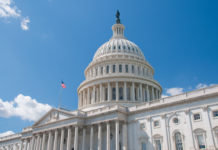CMS Issues Rule Outlining Appeals Processes Relating to Hospital Observation Status
On October 11, CMS published a Final Rule establishing appeals processes for certain Medicare beneficiaries who are initially admitted as hospital inpatients but are subsequently reclassified as outpatients receiving observation services during their hospital stay. The purpose of the rule is for CMS to comply with a court order issued in the case Alexander v. Azar, a nationwide class action case that established the right of patients to appeal such changes of status. A retroactive right of appeal will be available to Medicare beneficiaries meeting certain criteria, and both “expedited” and “standard” appeals processes will apply prospectively. CMS anticipates these processes will be available in early 2025. The appeals processes established by this rule do not extend to enrollees in Medicare Advantage (MA) plans. A fact sheet is available here, and LeadingAge will prepare a detailed analysis.
Medicaid Payments to Nursing Homes Average 82% of Costs of Care, National Study Finds
In a report released October 15 by HHS’s Office of the Assistant Secretary for Planning and Evaluation (ASPE), authors evaluated Medicaid payments to nursing homes across 44 states. The study developed a comprehensive, nursing home-level national database that integrated data on payments, costs, staffing, and quality from various sources, enabling detailed analyses of key financial and other metrics. Authors found that Medicaid reimbursements fell short of covering the costs of care for providing services, with many variables affecting the rates.
According to the report, which used 2019 data (the latest pre-pandemic data), Medicaid payment rates for the average or median nursing home covered about 82 cents per every dollar of costs that nursing homes reported incurring in caring for Medicaid residents. For approximately 40% of nursing homes, Medicaid per diem payments covered 80% or less of their estimated per diem Medicaid costs, the report says. The majority, or 52% of nursing homes, had 80-100% of their Medicaid per diem costs covered; and the remaining 8% of nursing homes had Medicaid payments exceeding their Medicaid per diem costs.
Nonprofit nursing homes were found to have a lower mean Medicaid payment-to-cost ratio (0.76) than for-profit and government-owned nursing homes (0.83 and 0.80, respectively). On average, Medicaid rates paid were 82% of costs to provide services, though variables were evident based on staffing patterns, ownership type, and occupancy. For example, the report found that nursing homes with total nursing staff levels less than 3.00 hours per resident day (HPRD) had the highest average Medicaid payment-to-cost ratio (0.85), while nursing homes with nursing staff levels above 4.00 HPRD had the lowest average Medicaid payment-to-cost ratio (0.77). The study made good faith efforts to compare costs to payments based on per diem rates and supplemental payments paid through the per diem rates.
According to the report, the mean and median all-payer payment-to-cost ratio is 1.0, indicating that, on average, nursing homes had all their reimbursable costs covered after all revenue sources were included. Within the analysis, authors suggest there was an inability to correct for costs associated with related party transactions (those that occur within organizations under the same ownership umbrella).
The report provides a comprehensive overview of Medicaid reimbursement across the United States. However, it does “not assess the sufficiency or determine the optimal and most efficient Medicaid payment-to-cost ratio,” the accuracy and completeness of data in Medicare Cost Reports, or whether nursing homes are operating efficiently with appropriate staffing levels based on resident acuity. Additionally, the study does not analyze the federal regulation (42 CFR § 447.204), which requires states to set Medicaid payments that are “consistent with efficiency, economy, and quality of care” and sufficient to ensure that services are available to beneficiaries at the same level as the general population. Specifically, it does not examine whether nursing homes are adequately staffed to meet the needs of their residents. The authors note that, “additional transparency around labor costs would be helpful and would satisfy the CMS requirement to document spending on direct care staffing for its proposed rules on Minimum Staffing Standards for Long-term Care Facilities,” which are now final. The findings from this study can inform Medicaid payment reforms, provide the data needed to assess the impact of potential changes in Medicaid payment policy on the financial performance of nursing homes at both the state and nursing home levels, and highlight potential disparities in Medicaid payments and nursing home costs.
The authors of the report, Assessing Medicaid Payment Rates and Costs of Caring for the Medicaid Population Residing in Nursing Homes, include Marc A. Cohen, Ph.D, the co-director of the LeadingAge LTSS Center @UMass Boston. Introductory information and the full report can be accessed here.
CMS Holds Off on Quality Measures Update
The Centers for Medicare & Medicaid Services (CMS) temporarily froze four quality measures on Nursing Home Care Compare in April 2024 due to a planned case mix methodology transition. Initially, CMS intended to unfreeze and update one of the four measures with the October 2024 refresh. However, in a memo revised on October 4, CMS announced that all four measures will be unfrozen together, as part of the January 2025 refresh. Learn more about the freeze and case mix methodology in the Five Star Quality Rating System Technical Users Guide.
Update on IV Solution Supply Shortages
Health & Human Services (HHS) Secretary Xavier Becerra issued a letter to healthcare providers on October 9 and a press statement on October 11 outlining the Department’s understanding of and actions to address intravenous (IV) solution supply shortages related to Hurricane Helene. Secretary Becerra stated that HHS has moved and protected product from the impacted manufacturing facility in North Carolina, worked with the Food & Drug Administration (FDA) and other agencies to increase supply, and is working to restore operations at the impacted North Carolina facility. The Administration for Strategic Preparedness and Response (ASPR) released an updated tip sheet on October 9 for managing IV fluid supplies during shortage.
NLRB General Counsel Expounds View on Non-Compete Agreements
On October 7, the General Counsel of the National Labor Relations Board (Board), Jennifer Abruzzo, issued a memorandum to the Board’s regional staff attorneys stating her intent not only to urge the full Board to find noncompete clauses unlawful, a position Ms. Abruzzo previously laid out in a May 2023 Memorandum, but also to remedy the harmful effects on employees when employers use and apply them. This could mean awarding lost wages in certain instances, for example, or providing other relief beyond requiring an employer to rescind a noncompete at issue in a particular case.
The October memo also outlines a proposed framework for assessing the lawfulness of “stay-or-pay” provisions, including training repayment agreements, under which employees must pay their employer in the event they separate from employment. This memo does not change current law, but it outlines legal theories that the General Counsel’s office is likely to present to the five-member Board during adjudication of certain unfair labor practice cases in the future. LeadingAge will do further analysis of the memorandum and follow this development as it unfolds.
CMS to Allow Home Health Telehealth Services During Inpatient Stay
On October 10, the Centers for Medicare and Medicaid Services (CMS) released a Change Request (CR 13812) and Medicare Learning Network Article (MLN 13812) announcing that as of April 1, 2025, home health agencies will not have claims rejected telehealth G codes (G032, G0321, and G0322) are included in billing that overlaps with an inpatient, skilled nursing, or swing bed claim. There is currently an edit that will reject any home health claim if billed with dates of services that fall within the dates of an inpatient stay (not including admission, discharge or any leave of absence dates). However, since telehealth services are non-payable reporting items they do not create a duplicate payment. CMS has been interested in better understanding home health agency use of telehealth and this adjustment to billing practices will allow home health agencies to continue to use these codes when communicating with the patient and caregiver during an inpatient stay that interrupts the home health period.
LeadingAge Continues to Ask for MA Prior Authorization Data
To inform the Centers for Medicare and Medicaid (CMS) staff on how Medicare Advantage (MA) prior authorizations and re-authorizations play out when MA enrollees need skilled nursing facility and home health care, LeadingAge is asking its SNFs and HHAs to track and report one month worth of data on the prior authorizations, concurrent reviews/re-authorization requests and appeals. This quantitative data can supplement the anecdotal stories members have shared where these processes deny, delay or terminate medically necessary care. This information can help us target the regulatory changes needed to improve these processes in MA and show the need for addressing the substantive administrative burden that goes along with it. Members can access the SNF Data Spreadsheet here and the Home Health Spreadsheet here to use in tracking their data. Once you’ve tracked one month of date, it can be submitted to Nicole Fallon. Organizational and patient level data will not be shared publicly. Instead, the data will be used to identify trends and challenges in the MA prior authorization processes in order to seek remedies with CMS.
LeadingAge Supports Legislators’ Request for Administration to Clear Up Negative Impacts of MA Flex Cards
LeadingAge commends the 34 members of Congress, led by Representative Lloyd Doggett (D-TX), who urged President Biden in an October 11 bicameral letter to issue guidance explicitly excluding Medicare Advantage Flex Cards from being counted in when calculating eligibility for federal assistance and benefits allowance.
As Katie Smith Sloan noted in LeadingAge’s press statement, “This request for federal guidance on Medicare Advantage Flex Cards is timely, as Medicare Open Enrollment begins next week, and it is increasingly urgent.”
The letter reinforces concerns LeadingAge has shared with CMS, HUD, and the White House along with Congress on how these special supplemental benefits – flexible benefit cards – are being counted as income and impacting low-income older adults’ eligibility for government assistance and benefits programs, such as federal assistance for housing, food, and more.
Weekly Recaps: October 16, 2024
- Affordable Housing Weekly Recap. Here is your Affordable Housing Weekly Recap.
- Home Health Weekly Recap. Here is your Home Health Weekly Recap.
- Hospice Weekly Recap. Here is your Hospice Weekly Recap.
- Life Plan Community Weekly Recap. Here is your LPC Weekly Recap.
- Medicaid, HCBS, and PACE Weekly Recap. Here is your Medicaid, HCBS, and PACE Weekly Recap.
- Nursing Home Weekly Recap. Here is your Nursing Home Weekly Recap.
- Workforce Weekly Recap. Here is your Workforce Weekly Recap.




